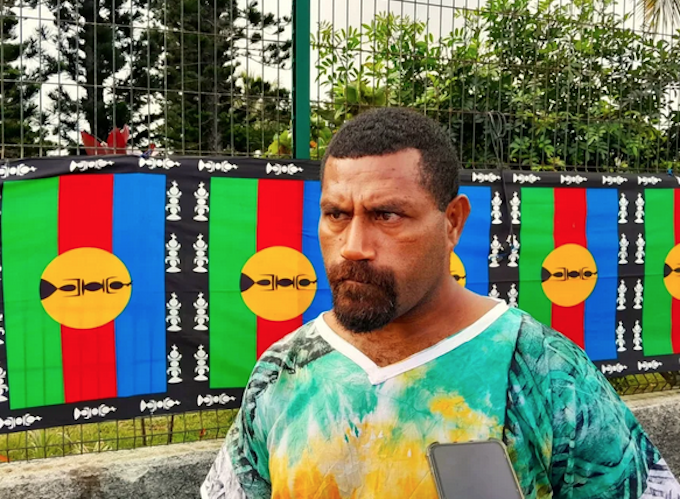
By Patrick Decloitre, RNZ Pacific correspondent French Pacific desk
A Kanak great chief has announced his resignation from New Caledonia’s customary Senate.
Hippolyte Sinewami Htamumu once presided over the 16-member traditional Senate of chiefs, which was set up as part of the implementation of the Nouméa Accord signed in 1998.
Sinewami, in announcing his resignation, said he wanted to denounce what he termed “inefficiency” and the “politicisation” of the Senate.
The institution is presented as being dedicated to New Caledonia’s indigenous Kanaks issues, including affairs related to customs, land and identity.
But Sinewami said one of the motivations leading to his resignation was that the Senate was not representative of all of New Caledonia’s chiefly areas; and that it was also too dependent on New Caledonia’s government and its Congress (Parliament).
“So now, more or less, it is as if it was just a government department because we’re depending on the government,” he told public broadcaster NC la Première TV.
The 47-year-old chief also said the institution had remained “silent” since violent unrest and riots broke out in the French Pacific archipelago and were still ongoing since May 13.
Sinewami, himself a great chief of the La Roche district (on Maré island, part of the Loyalty Islands group, north-east of New Caledonia’s main island) is also the leader of an alternate chiefly assembly, the Inaat ne Kanaky (Kanaky Great Council of Chiefs), which he set up in late 2022.
He also said many in the indigenous Kanak community believed that “the trust is no longer there, whether at the level of the customary institutions or at the level of our politicians”.
Widening Senate rift
“I didn’t see myself pursuing the work I have started with the youths while still being a member of such an institution,” he said, putting emphaisis on what is locally described as a widening rift within the customary Senate.
He called for New Caledonia’s institutions to ensure decisions made on the traditional level were “taken into account”, including in future political talks on New Caledonia’s long-term future.
A “Kanak people’s general assembly” is scheduled to be held on September 24, which, symbolically, is also the date in 1853 when France officially “took possession” of the territory.
Future talks: challenging politicians and France
Sinewami told local media that in view of the September meeting, his Inaat Ne Kanaky movement was now working to “reaffirm and reappropriate” Kanak rights.
“So September 24 is the declaration of sovereignty of the chiefdoms . . . This includes challenging the [French] state and even our elected politicians here, so that there is a place for our traditional people in future discussions.
“It is important that our voice is represented.”
This article is republished under a community partnership agreement with RNZ.










































